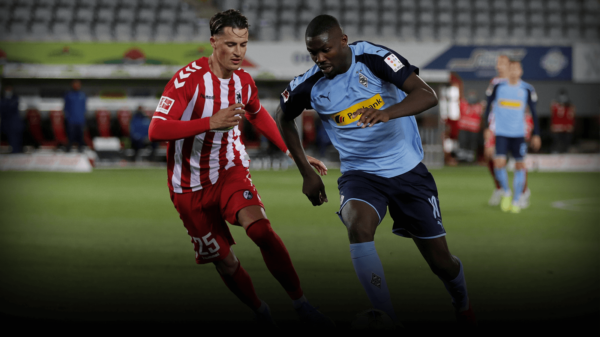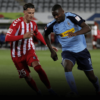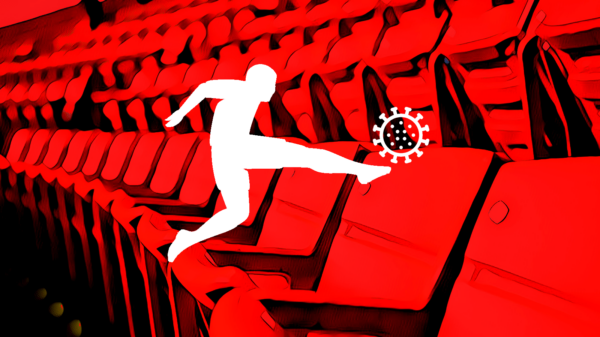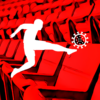A first win in 26 years, a first win in France since 1935, a win achieved without a number of key first team players, and a win achieved with a thrilling attacking performance – on face value, Germany’s 2-1 win over a strong France team in Paris should have thrown up few questions for Joachim Loew’s side.
But despite checking so many of the desirable boxes, you cannot help but feel that the mood surrounding Loew’s young Germany side was still a bit flat. Gone is the sparkling stardust of 2010; this post-2012 Germany are a side still coming to grasps with their raised stature in world football and with it expectations.
Additionally there are a number of worrying kinks appearing in the German side which, if not immediately addressed could have strong repercussions for a side many expect to make a big impact in the World Cup in Brazil in 2014.
In truth, friendlies are never a good marker to judge the progress of a side. Hardly anyone these days take it seriously, especially the February ones which come at a time when big clubs are generally focusing on their Champions League round of sixteen ties while negotiating a difficult phase in the league season. No wonder then, that the France victory represented Germany’s first win in the February friendly since 2008.What was interesting though was the similar narrative that the win against France showed to a number of Germany games over the last year – good, even brilliant in attack but worryingly soft in defence.
Loewlights
Over the last two years, a spine of Loew’s side has emerged despite his tendency to chop and change whether out of necessity or desire. Manuel Neuer is the undisputed number one, and Phillip Lahm occupies at least one of the two full-back slots (right now, it seems Loew has decided). Bastian Schweinsteiger, when not skipping friendlies is the first-choice ball-playing midfielder along with Sami Khedira who plays the box-to-box role alongside him. Thomas Muller usually turns up on the right of a front trident with Mesut Ozil fully established as the number ten of this team. Since Euro 2012 Mats Hummels too has managed to bring himself into this reckoning and is now firmly established as first choice center-back.
The rest of the selections though are pretty much up in the air with Loew displaying an alarming trend of self-defeating choices and self-imposed handicaps. The full-back slot opposite to Lahm is the biggest concern. On Wednesday, Benedikt Howedes slotted in on the left, because Loew steadfastly refused to call up another full-back after Marcel Schmelzer pulled out through injury. Howedes is a decent player, but he is a center back and very evidently one-footed. Asking a player like that to play left-back is creating a no-win situation. Howedes looks bad (and he did) and Loew learns nothing new about any new player that might have been able to fit in that role. Granted there is a dearth of quality full-backs in Germany, but games like this could have presented Loew with the opportunity to check out players like Bastian Oczipka and whether they can cut it at this level.
Germany’s poor transitions from attack to defence are another area where Loew has lacked nous. While Germany often attack voraciously and with an elan reminiscent of some of their best sides of the past, their ability to move from attack to defence is a massive drawback. Neither Khedira nor the impressive Ilkay Gundogan are general screeners in midfield and this meant that every time Franck Ribery or Mathieu Valbuena ran inside or at the defence, the Germans looked ready to concede. Ribery skinned Lahm more than a few times and often left Mertesacker and Hummels for dead. The center-back duo also faced challenges dealing with long aerial balls and looked very unaware on a number of occasions where Benzema could have profited. Valbuena did do so on one such instance to score the opening goal. While Germany switch from defence to attack in the blink of an eye, their ability to maintain their shape when the other team has the ball is a key area of concern that Loew has worryingly not been able to address. It’s not an exclusive problem. Even Pep Guardiola admitted during his early Barcelona years that why his team kept possession for so long is because “without it we are so shit”. Indeed, Barcelona and by an extension Spain’s method of dead possession whereby the ball is circulated almost meaninglessly between players is a defensive tactic employed for the purpose of asphyxiating opponents to submission. But Germany have not learned to do so yet, despite Loew’s late second half flirtation with six midfielders and no strikers.
False nine or real nine?
Mesut Ozil occupied the false nine position for the latter quarter of the game after Mario Gomez turned in a wholly insipid showing during his time on the pitch. Gomez is a predatory forward but looked awfully short of match-fitness and did little else but peddle his way through the game. Alongside him Lukas Podolski, playing as the more forward of the two wingers, also had a game to forget. It was a good chance for the Arsenal man to usurp either of Marco Reus and Mario Gotze but Podolski looked like a man who is a distinct second choice. He still has a left foot like a rocket, but Podolski’s biggest strength is on the counter-attack. Unsurprisingly then, his role in the Germany side has become marginalized as their stature has steadily risen with teams now sitting back more against them, automatically nullifying the threat of Podolski.
Some stars still sparkleBut it was not all doom and gloom. Some players still managed to distinguish themselves, not least the Real Madrid pair of Ozil and Khedira. Ozil is a fabulous player, silken of touch, and possessing almost panoramic vision. His passing is exemplary and his assist to find his teammate Khedira for the winning goal will be replayed in quite a number of highlight reels. Ozil’s stock is rising and little wonder that Loew reckons he is the best player in the world. Khedira too has steadily emerged as Germany’s fixture in midfield. A player, oft criticized, Khedira is an old-fashioned battler with intelligence to boot. His running was a constant thorn in the France side and he almost always proved to be the man over when Germany were attacking. His frequent forays left the defence unprotected but paired with an effective sitting midfielder, Khedira can be a huge asset for any squad. His partner Gundogan did very well, delivering the pass for the opener and dictating play to the extent that Schweinsteiger will now think twice about skipping friendlies. Thomas Muller too impressed, translating his Bayern Munich form to the international stage with a superbly taken goal and all round unpredictability. And at the other end, Rene Adler put in a secure performance in his long-awaited comeback to the national side.
Conclusions
Unfortunately, apart from Muller’s return to song, the rest was already known and just vindicated by the France friendly. Ozil and Khedira are Germany’s most important players at the moment, Podolski is a remnant from another era and Germany rapidly need a solution at full-back and to their problems of transition. The France win will have shut Loew’s critics down for a little while yet and perhaps give him time to work on these issues. Whether they get addressed though, is still a matter of serious concern. Identity, Loew believes is more important than titles. It’s hard to begrudge him that, but in the end, the last thing Germany want is for this talented generation of players to not crown their glory with football’s highest prizes.
This article was written by Quazi Zulquarnain. You can follow him on twitter @nondeplume.



























































